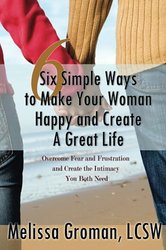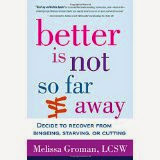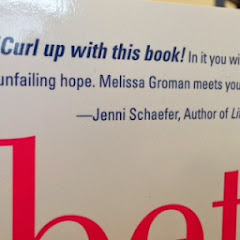
Lately I've been talking with a lot of folks who don't want to feel how they feel. And then, more deeply, are trying not to feel how they feel. And of course this is so very human, to want relief, to want to distance ourselves from feelings and situations that are painful, uncomfortable and seemingly unbearable.
It's not that we can't tolerate a bit of sadness now and again, or that we expect to feel great all the time. Most of us understand that moods ebb and flow, so do hormones, brain chemistry, and connectedness in relationships.
But sometimes we get caught up not only in the difficulty of feeling bad feelings, but in the wish and struggle not to feel them. And while, as always, I think that talking things out goes a long way toward relief, progress and new insights and ideas, there are some basics that I think help while we are on the path:
Meet yourself where you are. If you are feeling awful, don't fight it. As bad as anger, frustration, grief can feel, trying not to feel what you feel only delays true relief.
But that doesn't mean that you can't take a breather. If you are a hot mess, cool off a bit by writing things out, talking things through, taking a walk, or a run. Use the rule of three: Wait three hours, three days or three weeks before making decisions based on your feelings. While you are waiting, consult with someone neutral and trustworthy. Making decisions when you are a hot mess can be risky.
And easy does it. When you are in acute emotional pain, go easy on yourself. Bad feelings do pass, and when things ease up a bit, you can take a broader look at what's going on, and put your attention toward making things better all around.
Consider studying your feelings a bit. Even when you feel revved up with a mess of difficult feelings, you can take a deep breath and few minutes of quiet. Anger can teach us what we stand for and believe in. Fear, what helps us to feel safe. Frustration, what we might long for. Are your feelings familiar? Do they remind you anything or anyone? What memories do they evoke? What are your usual coping strategies? Do they work? Where are you successful in finding good relief, and where could you do better?
Though intense bad feelings may be hard to bear, they are also guideposts to our past, our desires and to progress. Even hot messes can yield us better feelings when agree to be with ourselves a bit and go easy.











